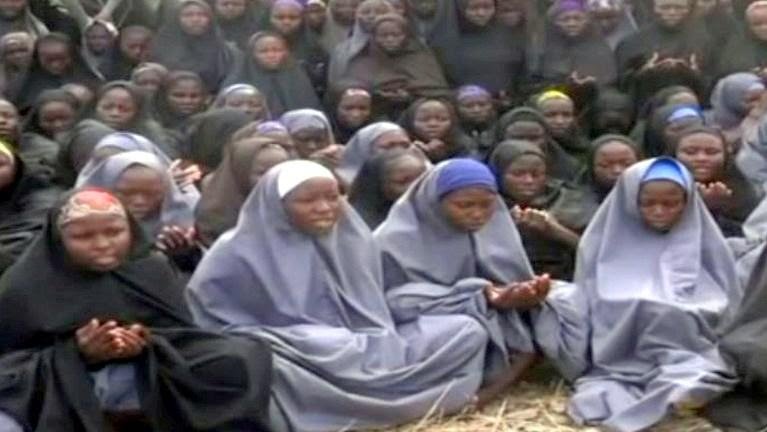
Chibok schoolgirls
Report says 1,680 schoolchildren abducted since 2014 Chibok girls
A total of over 1,680 schoolchildren have been kidnapped since the 2014 abduction of 276 schoolgirls from Chibok, Borno State, as terrorists continue to attack schools and communities in Nigeria.
A statement by Media Manager, Kunle Olawoyin of a non-governmental organisation, Save the Children International, SCI, which has continued to raise concerns about terrorists attacking schools and colleges, said the kidnap of the Chibok schoolgirls sparked the #BringBackOurGirls movement and protests that attracted public support from celebrities and public figures, including Malala Yousafzai, Hillary Clinton, and then First Lady, Michelle Obama.
The new data analysis by the organisation revealed that attacks on schools have continued.
SCI believed the attacks have long-lasting consequences for communities and for children’s access to education, which often leads to mass withdrawal of children from school and school closures “The majority of these attacks took place in North-West Nigeria (49 attacks), followed by North-Central Nigeria”
“In Katsina state in the North-Western part of the country, nearly 100 schools remain closed due to insecurity, affecting the education of over 30,000 children.In the aftermath of attacks, children and communities are left traumatised, and the majority do not receive psychological support”.
During focus group discussions with affected communities, Save the Children staff found that many children were scared of returning to school. “A girl, who survived the Chibok school attack, said: “I am afraid of being a victim, of dying or being raped by the insurgents”.
Country Director at Save the Children Nigeria Famari Barro, said more needs to be done to prevent attacks and support children, their families in the aftermath. “This is because the combination of the trauma and loss of education resulting from these attacks is likely to be lifelong unless children are provided with the means and support to recover from the traumatic events they have been through” .
In 2015 Nigeria endorsed the Safe Schools Declaration, which seeks to ensure the continuity of safe education during armed conflict and outlines commitments to strengthen the protection of education from attack, but it remains largely unimplemented at the state and community levels, as rural community schools remain vulnerable to attacks.
Ibrahim Zanna Sunoma, Deputy Speaker of the National Children’s Parliament, Nigeria appealed to the government and other relevant stakeholders to prioritise expanding the implementation of the Safe Schools Declaration across the country to ensure that children can learn in a protective environment.
